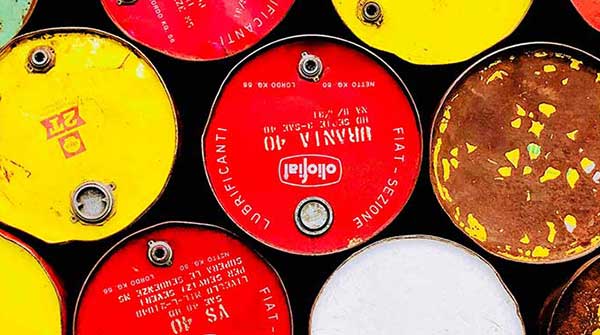A new crude oil bloc seems to be taking shape, apparently at the cost to the U.S. and the West

A new, global ‘crude’ order is coming, carrying geopolitical ramifications.
On Mar. 10, a China-brokered deal between two oil-producing rivals in the Middle East, Iran and Saudi Arabia, was announced. The deal took the world by surprise and indicated that a new global order was beginning to crystallize. It also announced the emergence of China on the global geopolitical horizon.
Besides a significant geopolitical move, the announcement of a rapprochement between Iran and Saudi Arabia also had crude oil implications. With Riyadh and Tehran finally opting to narrow their differences and chart a new path, the deal could mean a more potent OPEC+.
Differences between the two have marred many an OPEC ministerial meeting. Their interests have often clashed, resulting in heated arguments behind closed doors during OPEC meetings. And though both understood the importance of OPEC and its necessity for their own interests, they were often seen on opposite sides. Their animosity was impacting the cohesion and smooth working of the OPEC. That phase could soon be over, some now feel.
 |
| Related Stories |
| The oil sector has its swagger back
|
| Greenwashing label discourages real solutions to energy crisis
|
| Has the Saudi/Russia relationship reached its limits?
|
And in the meantime, the Russian/Saudi alliance on the crude horizon seems to be continuing, despite the war on Ukraine and the pressure from Washington on Riyadh to openly side with the western powers.
Last Thursday, Russia and Saudi Arabia again underlined the importance of close liaison between them to promote ‘stability’ in the crude oil markets. Russia’s Deputy Prime Minister Alexander Novak met with Saudi Arabia’s Energy Minister Prince Abdulaziz bin Salman to discuss “oil markets and efforts of the OPEC+ group to promote market balance and stability,” the Saudi Press Agency reported.
Not yielding to pressure to open their taps further, the leaders of the two largest oil-producing countries also “stressed their commitment to the decision made by OPEC+ last October to reduce production by two million barrels a day until the end of 2023.”
In the meantime, courtesy of the turmoil in the global banking sector (Credit Suisse to SVB Financial Group and Signature Bank, among others), the oil markets slumped last week to a 15-month low, with Brent crude dropping 11 per cent to below $74 a barrel. That led to the commitment by the world’s two major oil producers to keep a tight leash on oil output and was a definite signal to the market that OPEC+ was determined to keep a floor under the crude market prices.
Earlier, in a talk with Energy Intelligence, the Saudi energy minister also made it clear that the Kingdom would not sell crude to any country that imposes a price ceiling on its oil exports. The posturing against potential oil price ceilings followed consultations between Russia and Saudi Arabia.
Saudi Arabia also warned that, besides halting supplies to countries that adopt a price cap on crude imports from Saudi Arabia, Riyadh would also “reduce its oil production.“ Prince Salman bin Abdulaziz also warned he “would not be surprised if other oil exporters do the same.” That was a clear warning to western stakeholders against the policy of price caps on oil.
The Saudi criticism of oil price ceilings came against the backdrop of the western price cap on Russian seaborne oil exports. It also notably follows a Mar. 9 meeting between Saudi Foreign Minister Faisal bin Farhan Al Saud and his Russian counterpart Sergei Lavrov in Moscow.
And in the meantime, according to Bloomberg, Saudi Arabia is importing millions of barrels of diesel from Russia “despite having more than enough of its own.“ Riyadh imported almost 2.5 million barrels of diesel-type fuel from Russia in the first 10 days of March, far more than at any other time in the last six years, according to Kpler data compiled by Bloomberg. The move appeared to provide Russia with a significant financial cushion at a time when western powers were attempting to dry the earnings of Russia from its crude and fuel products exports.
Interestingly, Riyadh was importing Russian fuel products while sending considerable amounts of the fuel to Europe. The flows also show how the global energy trade is being rerouted in the wake of sanctions on Russian supplies.
From Russia and Saudi Arabia to Iran and China, a new ‘crude’ bloc seems to be taking shape, apparently at the cost to the U.S. and the West.
Toronto-based Rashid Husain Syed is a respected energy and political analyst. The Middle East is his area of focus. As well as writing for major local and global newspapers, Rashid is also a regular speaker at major international conferences. He has provided his perspective on global energy issues to the Department of Energy in Washington and the International Energy Agency in Paris.
For interview requests, click here.
The opinions expressed by our columnists and contributors are theirs alone and do not inherently or expressly reflect the views of our publication.
© Troy Media
Troy Media is an editorial content provider to media outlets and its own hosted community news outlets across Canada.

